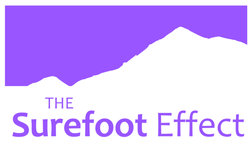|
Join Surefoot for two FREE and fun storytelling events on Thu 22 Sep in London and Mon 26 Sep in Stirling.
Open to people working within community groups, these engaging events will showcase storytelling techniques to envision and explore positive futures and increase resilience. About the events An exploration of storytelling as a tool that can be effective for guiding groups into thinking about needs and overcoming obstacles. The tools you will learn at this event can be especially useful for those at the forefront of the fight against climate change as a way to envision and explore positive futures and increase resilience in the journey through the difficulties that we all face in the present. Covered during the event:
sign up on eventbrite so we know the numbers for lunch. Book your place Read more and sign up to the event in London, London, Thu 22 Sep 2022, 11:00-3:00 PM Read more and sign up to the event in Stirling Stirling, Mon 26 Sep 2022, 10:00-2:00 PM Project background This initiative is part of the Erasmus+ Once Upon Your Time project . In early 2022, participants from Iceland, Slovenia, Spain and the UK met up for a week’s training. The purpose was to create ways to support young people at risk of social exclusion. The group went through a wide range of exercises to explore Joseph Campbell’s technique Monomyth, also called The Hero’s Journey. As a follow up, Journey to the Inner Hero, Surefoot’s participants share their experiences on how The Hero’s Journey works on body and mind, and reflect on what directions to take with the acquired skills and knowledge.
0 Comments
Participants from Iceland, Slovenia, Spain and the UK met up for a week’s training through the Erasmus+ European funded project Once Upon Your Time.
With the purpose of creating ways to support young people at risk of social exclusion, the group went through a wide range of exercises to explore Joseph Campbell’s technique Monomyth, also called The Hero’s Journey. Surefoot’s participants share their experiences on how The Hero’s Journey works on body and mind, and reflect on what directions to take with the acquired skills and knowledge. To access hidden treasures within – The technique and training A group of 23 people got together in Caravaca (Murcia), Spain in the springtime. All the participants were already engaged with teaching or in other ways with a profession supporting young people and learning processes. With the use of storytelling techniques, the training conducted by Juan Pedro Romera focused on methods to increase resilience in children and teachers. In everyday life it’s easy to get caught up in (over)thinking and letting thoughts running in loops with fixed narratives about ourself and the world around us. To let go of a constrained mind with the purpose of letting the body “speak”, the training was not only based on writing but also included physical games, dancing and drawing self-portraits. Joana Avi-Lorie, researcher at The Edinburgh University, Story Weaver at Scottish Communities Climate Action Network and a creative practitioner, explains the techniques as a package of creative writing exercises with different length and different prompts placed strategically to allow subconscious thoughts and emotions to emerge through the writing. Combined with the physical activities it opened up for “Working without thinking,” as Callum Arthur, a maths teacher from Scotland points out. Keeping the pen in flow on the paper without thinking, was a core principle in the writing exercises. Euri Bartlome Vidal, associate at Surefoot where he runs international workshops about resilience and sustainability, explains some of the actual exercises, “Shorter exercises led up to longer writing sessions. For example, a 10 minutes writing task was based on a card with an illustration of an animal. I got a card with an orca together with three words to incorporate: fertility, strength and power. We didn’t get much time to think, it was all about writing what instantly came to mind. For the final exercise, we had three hours to write a tale with a few guiding elements: The text had to be in a fantasy story, it should be about our own life journey and have a happy ending. I was surprised how many words I kept pouring out. At the end of the training week, I felt more energised and like something within was unlocked.” The outcomes of feeling energised, unlocked, liberated, unleashed and empowered are some of the benefits echoed by the participants. To reach this point, participants also faced challenging times - mainly to be confronted with oneself. The group activities built a basis of trust to work together even though some exercises could make one feel vulnerable at first. For example, by sharing a drawn self-portrait, or reading one’s text aloud to the group. Suzanne O’Donnell who is community educator, volunteer at Climate Ed, and from the Climate Hub Wandsworth in London (part of the Climate Emergency Centres) notably felt the inner confrontation, “When writing, things you didn’t expect can come up to the surface. It was a good surprise.” Being in a safe space with the group, to share and listen to others, gave an opportunity to grow stronger by the vulnerability, “I gained self-confidence in speaking to others, and I learned to reflect and respond in a deeper way to what other people share,” Suzanne elaborates. “While each of the techniques we learned in the week individually helped to unlock some creativity, being able to spend most of a week working through the series of exercises allowed me to express myself in the final writing exercise in a way I have not had the luxury to do in many, many years,” muses Pamela Candea, Surefoot associate. “I used the structure of the Heroine’s journey for my final piece of writing as I feel this model is in line with my core belief that deep connection with nature and service to all beings are crucial to supporting the essential paradigm shift needed to protect people and the planet.” Expanding the world through cultural meetings Working with storytelling across countries and cultures adds a depth in how the methodologies work. As Joana expresses: “How who we really are is or isn’t deeply interconnected with our culture, the nature vs. nurture paradigm. It was fun to learn new things about places where I haven’t been before through the stories of their inhabitants.” The value we put into words via the constructure of our language becomes clearer when exploring stories through multiple languages. As Suzanne illustrates, when we in English say, “I like…” it would be expressed from another angle in Spanish, “It pleases me …”. As much as differences were explored, similarities also stood out clearly. As Callum noticed, teenagers are facing many of the same challenges across country borders. The journey further on Based on The Hero’s Journey training, the project Once Upon Your Time will include the creation of a manual which will be available in all four languages of the participating countries. Also, participants have the opportunity to work further with the subject, to apply and tailor it to each person’s work life. Joana will look into including the method in the qualitative inquiry from her PhD project and to use it in her practice as a story weaver. She points out the strength of the method, “Writing around your emotions and thoughts, dressing them with a story, in a safe and gradual way whilst ultimately being able to identify and communicate them. Being attuned with these emotions and thoughts is crucial to be able to self-regulate them as part of building resilience and they are a great fun way of building trust within a group and between children and educator, social worker or therapist.” As Callum underlined, the method is a different approach from his typical maths teaching. It has provided him with new tools too – both for himself and in the future for his students. The actual shape of how to use the tools is finding its ways as the project progresses including subsequent meetings with Pam and Euri from Surefoot. Suzanne looks forward to using the new skill set when working with children in Climate Ed on climate change topics, and with people in the Climate Hub Wandsworth. It’s close to her heart to let storytelling become a tool for valuable voices to be heard. “Some children are scared of putting down words in their homework. They can struggle with hurdles like dyslexia or confidence, which can reach into adulthood. The method is useful to provide people with new ways of expression, where there is no right or wrong. It’s connecting them with the magic they have within themselves,” Suzanne states and thereby sums up a central powerful aspect of The Hero’s Journey. Additionally, she emphasises that working this way moves the participants out of the typical fixed societal context and makes everyone equal. Euri and Pam will add some of these tools to the techniques and tools in Surefoot’s individual, community and organisational resilience building workshops. For videos, next steps in the project and access to the future manual, keep an eye on Once Upon Your Time on Facebook and Surefoot’s social media, Facebook: @TheSurefootEffect Twitter: @SurefootEffect Instagram: surefoot_effect Sign up for the Surefoot Newsletter Your next step? Are you interested in knowing how you and your organisation can build resilience? Check out Surefoot’s areas of expertise: workshops, net zero for teams, training and mentoring or get in contact via [email protected]. Five people from Surefoot participated in a storytelling workshop as part of our Erasmus+ project, Once Upon YOUR Time.
Euri and Pam were joined by Callum Arthur, a teacher working online with learners facing barriers to accessing school; Joana Avi-Lorie, a PhD candidate working to create storytelling approaches for children dealing with climate anxiety, and one of SCCAN's storyweavers; and Suzanne O'Donnell, who works with the Climate Ed schools programme run by one of Surefoot's directors. The team spent a week with partners from Iceland, Slovenia, and Spain, learning writing techniques from Juan Pedro Romera, which they will adapt for use with young people. And watch this space as we start sharing some of the writing they each did during the workshop! As we go into the summer months, the three Erasmus+ projects Surefoot participate in have continued to progress smoothly. In Breakthrough for Resilience, the four partners completed an 'individual resilience' workshop led by the Greek partner, the Society of Social Psychiatry. Partners explored 6 resilience methodologies that included 'let's draw', 'name your feelings', and 'the sunbeam of resilience' resilience' and plan to share these widely. Shortly after, and with an initial target of 8 participants, our Italian partner VolTo held two sessions of the individual resilience workshop in Italy for a total of 46 people. VolTo and Sweden-based Mobilizing Expertise are jointly preparing the next phase of activities, the ‘place and nature conservancy resilience’ workshops which will begin taking place in the partner countries in the autumn. 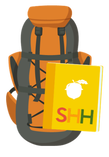 Partners of the project Sustainability, Heritage, and Health have now designed the main structure of the three walking routes that each of the four organisations will offer to participants. Recently, the National Agency praised the project team for catching up with scheduled project activities despite a 7-month initial delay due to Covid19 and other issues outside the control of the partnership. Those participating will learn about heritage sites in the four participating countries and sustainability issues at a time when international travel is limited and there is a need to spend time outdoors close to home. There is an emphasis on health by encouraging exercise and mindfulness. The routes will take participants through the streets of Edinburgh, Athens, Vilnius and Bilbao and coastal and rural enclaves in the UK, Greece, Lithuania and Spain such as the coasts of Fife in Scotland, Greek islands, the Baltic coast or the lush forests of Cantabria in the north of Spain.  The team of ‘Once Upon Your Time: storytelling for preventing early school leaving’ have completed the research of methodologies that use storytelling for personal development and to increase mental health in children and teenagers. The Surefoot Effect has covered methodologies that include the use of books in a library, writing in nature, superheroes and a card game with "dark themes" that have led children to write stories ranging from personal experience to topics such as dark holes and the slave trade that would have usually not grabbed their attention. The next phase of the project will see the creation of an advocate document for teachers in the participating countries to use these methodologies in the classroom with children and teenagers. 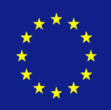 The three projects are co funded by the Erasmus+ programme. A few updates on the three Erasmus+ projects. Breakthrough for Resilience The project Breakthrough for Resilience has passed its half-way milestone recently. Partners have collected resilience tools in three aspects: people, places and communities, held a pilot workshop in November 2020, and the Society of Social Psychiatry and Mental Health based in Greece has run three further pilot workshops. Our partners will deliver 3 workshops during 2021, each dedicated to one of the three main aspects of the project. Please join us for our Creativity Builds Resilience workshop in June. Sustainability, Heritage, Health In the project Sustainability, Heritage, Health we have together with partners from Greece, Spain and Lithuania started planning the first routes which will explore heritage in the four participating countries and make connections to environmental issues. On one of the routes, in Athens, you can stroll along marble streets that are thousands of years old to learn about Poseidon, god of the seas, and the current state of the world’s oceans, pollution, how millions of people depend on the oceans for livelihoods, and the ways we have to protect them. On one of the routes in Scotland, you can learn about the visionary thinkers and how the country has become a leader in the transition to a more sustainable future. 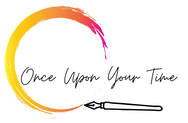 Once Upon Your Time In the project Once Upon Your Time for schools, we and partners in Iceland, Spain and Slovenia are researching storytelling methodologies. The goal is to adapt these methodologies and work with children aged 11-16 in schools in the four participating countries. More info to follow as the projects progress. 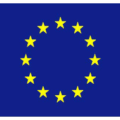 The three projects are co funded by the Erasmus+ programme. |
�
AboutHere’s a collection of some of our articles which have been in our newsletters or published elsewhere.
Archives
May 2024
|
Sign up TO SUREFOOT NEWS >>The Surefoot Effect equips people, communities and organisations with skills for sustainability and resilience.
|
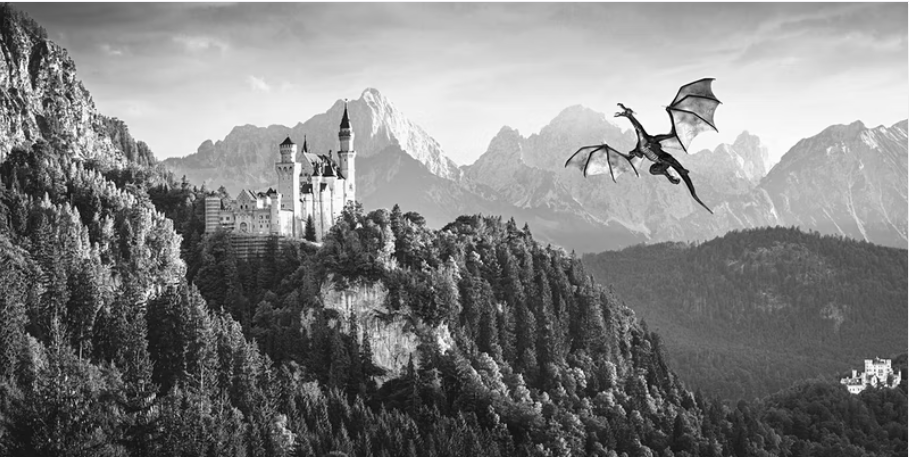

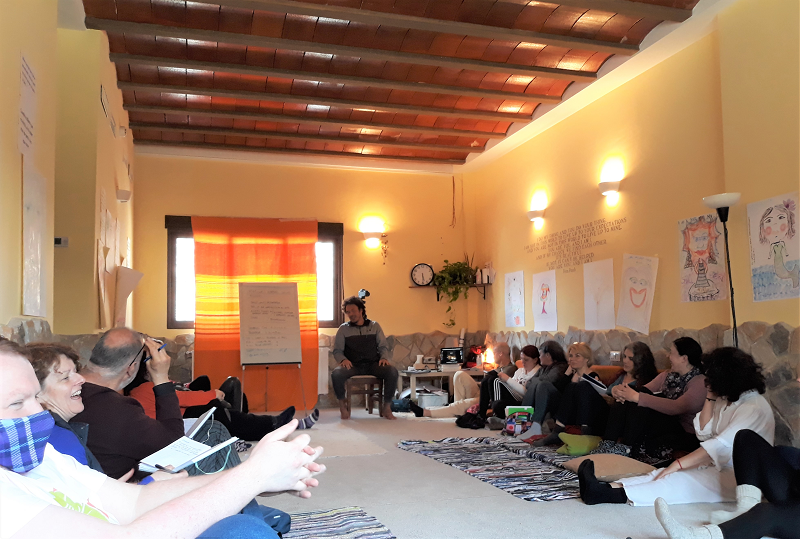
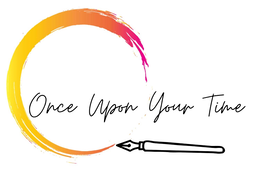

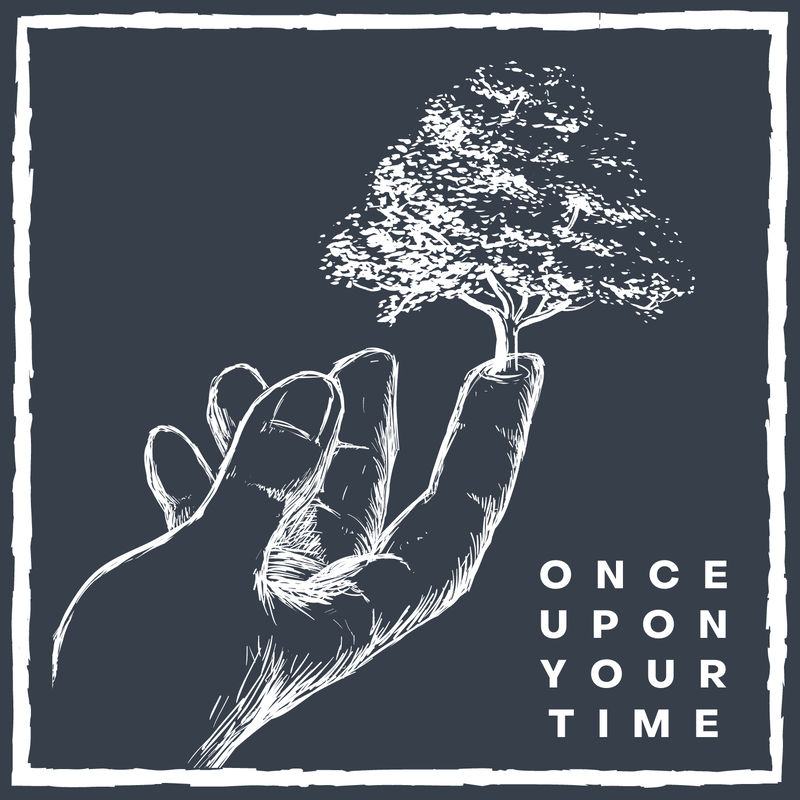
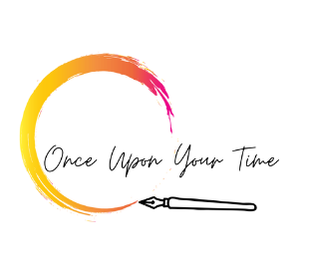
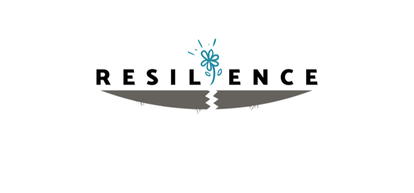
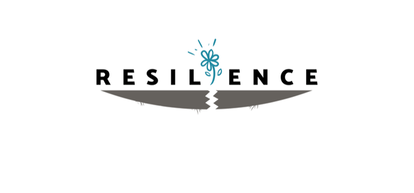
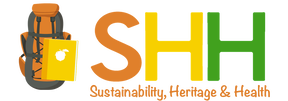
 RSS Feed
RSS Feed
